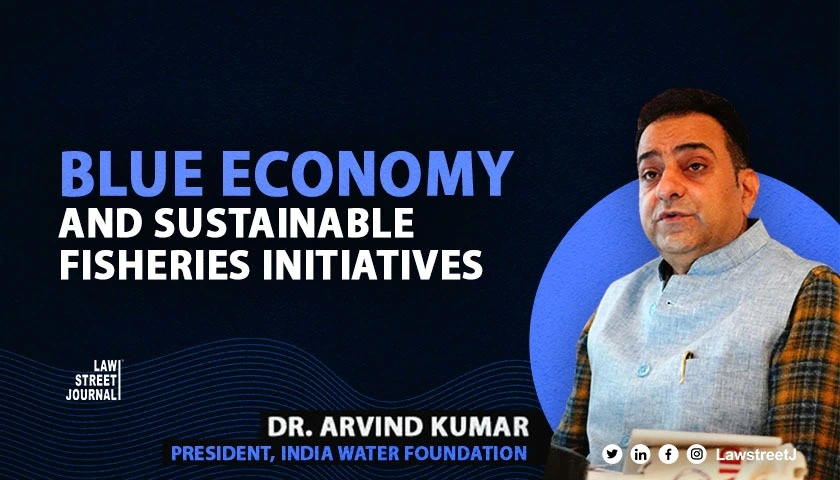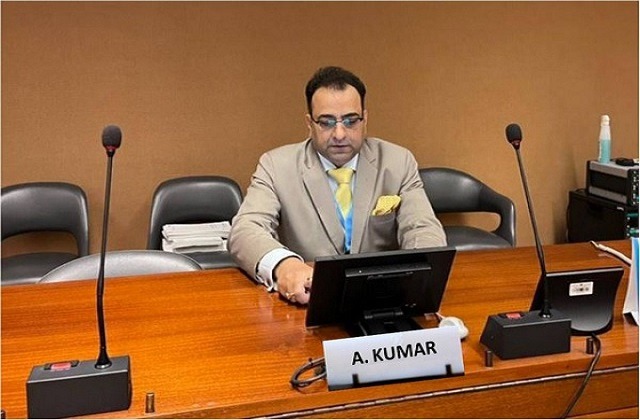NEW DELHI: Every individual not only has the right to feed themselves and their family in dignity, but also has the responsibility to do everything within their power to do so.
This means the every person must have access to resources and the freedom to exercise their human rights and responsibilities. Last year, 735 million people went hungry. More than 3 billion cannot afford a healthy diet proving that we are going backward on our goal of zero hunger by 2030. States are obliged to develop, individually and through international cooperation, a range of measures of production, conservation and distribution of food to ensure that everyone is able to access enough food to be free from hunger and malnutrition. In realising the right to food, attention should also be paid to concepts such as food security and food sovereignty.
Nowhere in the world is as dependent on healthy fisheries as the Asia and the Pacific. More than eight in ten of the worlds families reliant on fishing for livelihoods live here.
The coral reefs, mangrove forests, and other coastal ecosystems provide food and economic security for coastal communities across the region. Recognizing how dependent their populations are on healthy coastal ecosystems, and the risks climate change poses, these nations have made ecosystem based adaptation to climate change and a resilient coastal fisheries sector a top priority.
Fish plays a key role for food security. It is a primary source of protein and essential nutrients. Fisheries, aquaculture and related activities provide income and livelihoods for numerous communities across the world, including small-scale fisheries. Just as there is no life without water, there is no life for millions of people in coastal and riparian communities without small-scale fishers and fish workers. The full enjoyment of human rights by small-scale fishers and fish workers is therefore a necessary precondition for the realization of the right to food by everyone.
The growing demand for fish questions the sustainability of marine fisheries and aquaculture, now a fundamental supplier of fish. The contribution of fisheries and aquaculture to food security and nutrition now and in the future is driven by many interactions between several environmental, development, policy and governance issues.
Small scale fisheries and food security in India
The Department of Fisheries, Ministry of Fisheries, Animal Husbandry and Dairying is implementing a flagship scheme namely Pradhan Mantri Matsya Sampada Yojana (PMMSY) with an investment of Rs. 20,050 crore for a period of 5 years with effect from Financial Year 2020-21 to Fy 2024-25 for holistic development of fisheries and aquaculture for the benefits of fishers including small-scale fishermen, fish farmers and other stakeholders.
The PMMSY inter-alia supports the small-scale fishermen for acquisition of boats and nets, support for communication/tracking devices, providing sea-safety kits, insurance cover to fishers, support for acquisition of deep-sea fishing vessels with modern fishing equipment, alternative/additional livelihood activities like seaweed culture & bivalve culture, training & skill development, adoption of new fish culture technologies like Re-circulatory Aquaculture System, Biofloc system, cage culture and support towards cold-chain and marketing facilities. PMMSY also envisages financial assistance towards livelihood and nutritional support for socio-economically backward traditional fishers families during the fishing ban/lean period.
The National Food security act legally entitles upto 75% of the rural population and 50% of the urban population to receive subsidized food grains under Targeted Public Distribution System. About two thirds of the population therefore is covered under the Act to receive highly subsidized food grains. As a step towards women empowerment, the eldest woman of the household of age 18 years or above is mandated to be the head of the household for the purpose of issuing of ration cards under the Act.
Also Watch - Air Pollution:Problems & Solution || Exclusive|| Dr. Arvind Kumar, President, India Water Foundation
The Act is being implemented in all the States/UTs, and on an all India basis, out of maximum coverage of 81.34 crore persons, around 80 crore persons have been covered under NFSA at present for receiving highly subsidized food grains.
55th session of the Human Rights Council
The 55th session of the Human Rights Council meetings is being held in Geneva from 26th February 2024 to 5th April 2024. Among various issues and topics to be discussed during these meetings is also Fisheries and Right to food in context of climate change. In the present report, the Special Rapporteur focuses on small-scale fishers, fish workers and Indigenous Peoples reliant on fishing, because they are on the front lines of climate change.
Meanwhile, 60 per cent of the worlds fisheries are being fished at capacity. The global biomass of large predatory fish targeted by fisheries has fallen by two thirds over the past century.
One third of freshwater fish are threatened with extinction owing to overexploitation, pollution and habitat destruction. Overfishing not only threatens the environment but also undermines the food security and livelihood of billions of people. Moreover, among food systems, small-scale fisheries are some of the most vulnerable to climate change. Members of coastal communities and Indigenous Peoples on coasts, especially in the Arctic and on small islands, have been among the first people to experience the disruption and violence wrought by climate change. The COVID-19 pandemic hit the fishing sector hard.
Travel restrictions meant that fishers were unable to get their catch to markets and consumers, leading to a decline in demand and prices. The closure of ice-storage facilities, which were not considered essential services, made it impossible for fishers to preserve their catch. Many fishers were thus forced to dump their catch back into the sea.
India Water Foundation during the 55th session
During the interactive dialogue on the report of the special rapporteur on fisheries and right to food, in his oral statement Dr. Arvind kumar, President, India Water Foundation emphasized that India is one of the very few countries, that not only strengthens food security for its people but also for its neighbours and other countries of the global south when needed. Further, he highlighted the initiatives and steps taken by the Indian government to address unsustainable fishing and small-scale fishing is being promoted in the country.
The Blue Revolution, a flagship government scheme, is aimed at achieving economic prosperity in the country. In this scheme, fishermen and fish farmers contribute towards food and nutritional security through the full potential utilization of water resources for fisheries development in a sustainable manner, keeping in view bio-security and environmental concerns.
The Blue Revolution, with its multi-dimensional activities, focuses mainly on increasing fisheries production and productivity from aquaculture and fisheries resources, both inland and marine. Moreover, the ministry of agriculture and farmer welfare, the department of animal husbandry, dairying and fisheries have accordingly restructured the scheme by merging all the ongoing schemes under the umbrella of the Blue Revolution.
The restructured scheme provides focused development and management of fisheries, covering inland fisheries, aquaculture, marine fisheries, including deep sea fishing, mariculture and all activities undertaken by the National Fisheries Development Board (NFDB).
Way Forward
The Voluntary Guidelines for Securing Sustainable Small-Scale Fisheries in the Context of Food Security and Poverty Eradication are necessary to address the long-standing political marginalization and exclusion of small-scale fishing communities. Small-scale fishers have the right to active and free participation, directly and/or through their representative organizations, in the entire decision-making process related to the preparation and implementation of policies, programmes and projects that may affect their lives, land and livelihoods. Strengthen the capacity of institutions and organizations to identify, develop and promote renewable energy powered technologies in fisheries and aquaculture value chains.
While subsidy and credit guarantee schemes would support making renewable energy technologies more affordable, this alone would not be able to sustain the industry. In order to develop a marketing scheme, these technologies would require that various actors work together: farmers, the agrifood industry, logistics companies, technicians and engineering firms specialized in solar energy, as well as the food processing industry. Human capital that can develop, install and service these technologies is key to the sustainable development of this sector.









